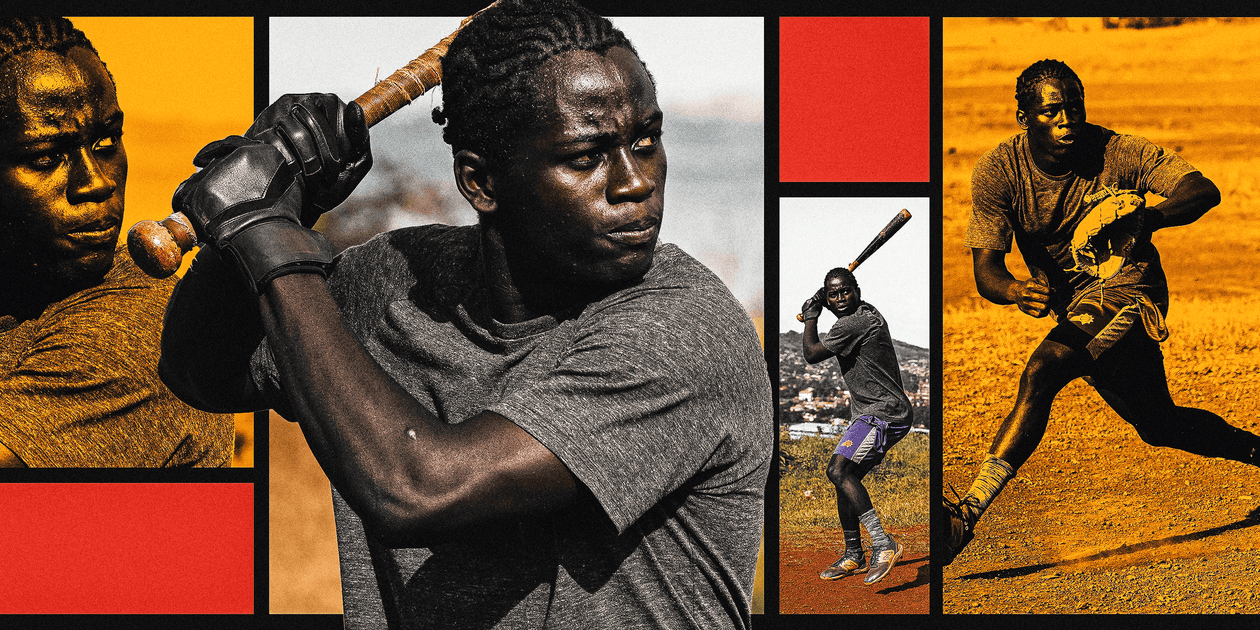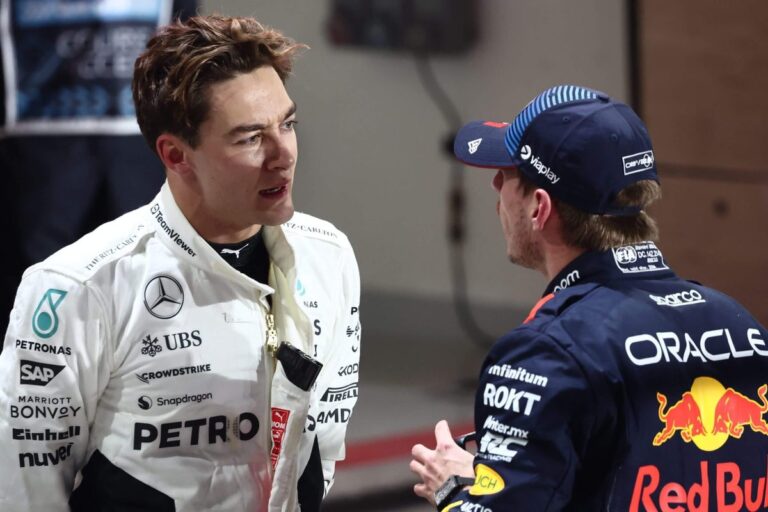Here is the plain text result:
For the past six months, Armstrong Muhoozi has been putting in work. He lugs his baseball equipment about a mile uphill from his ramshackle home to a rutted, bumpy field at the Masese Co-Education Primary School. Sometimes, the 17-year-old makes this dusty trek twice per day, committed to perfecting his backhand on ground balls, creating separation between his upper and lower half on swings off the tee, and strengthening his already laser-like arm through a regimen of regular drills.
He hoofs it to a local gym where, for the equivalent of $1.35 per session, he rotates through a set of explosive medicine ball throws, dynamic shoulder exercises, and increasingly heavy squats, even when he can’t afford full meals.
On Wednesday, when teenagers from across the globe joined MLB organizations on the first day of the international signing period, those family members – as well as uncles, aunts, more cousins, his grandmother, and teammates – gathered in a completely different setting. An hour later, the family crowded around an L-shaped table at a restaurant in his hometown of Jinja, a city of 93,000 located 60 miles east of Kampala, Uganda’s capital city. Wearing a crisp, white jersey while sitting in front of a banner featuring the black and gold logos of his new club and the black, red, and gold flag of his home nation, Muhoozi meticulously printed his name on a contract with the Pittsburgh Pirates.
His signing bonus of $45,000 is almost 70 times the median annual income of his fellow Ugandans. Just the fifth player from this East African nation to sign with an MLB organization and the second position player, inking this seven-year minor league deal is the first step in what Muhoozi hopes will be a baseball journey that takes him from a makeshift field overlooking the Nile halfway around the world to the banks of the Allegheny.
The kid’s got a cannon: Long tossing the length of a football field before crow-hopping at a pitcher’s screen, uncorking balls that register over 95 mph on handheld radar guns. He sprints past corn stalks that line the outfield, then smacks soft toss balls on a beeline towards mooing cows.
Uganda might seem a surprising place for baseball talent to blossom. Most of the population has never seen a baseball field, and many here have no idea the game is played within their borders. But here, where roughly half of the population lives in poverty, there’s an academy run by baseball’s richest team, the Los Angeles Dodgers.
The academy, known to local players and coaches simply as “the complex,” is behind a blue-and-white painted wall in Mpigi, 85 miles west of Jinja. The only one of its kind in Uganda, the complex is similar to the academies major-league organizations have in the Dominican Republic: A combination academic and baseball school, where players live, go to class, and compete with each other from their preteen years through high school.
Baseball grew in other pockets around the country, too: In Luwero, for example, two hours north of Kampala, there are multiple primary school fields where as many as 50 children gather each day to practice. Those fields have produced three of the four other players who have signed with MLB organizations: Ben Serunkuma and Umar Male, who signed with the Dodgers in 2022, and David Matoma, a Pirates prospect who signed in 2023.
Those players, as well as Muhoozi, all went through “the complex” first. The Dodgers wanted to set up outside the snarled traffic of Kampala.
Pull off one of the many roundabouts that dot the main road, and it’s just a few hundred meters up a muddy road to Muhoozi’s house. The home is made of rough-hewn wood and corrugated metal on a cement slab. Outside, a handful of dogs and the family’s mother goat, with her litter of newborns, hide from the baking sun in the shade of the cement building next door.
The house is lit by a dim, solar-powered bulb. The main room is both kitchen and living space, with broken couch frames that have plastic chairs slotted in where the cushioned areas used to be. Muhoozi’s cousins and siblings clean dishes after their daily meal, or use spent water bottle caps to play ludo, a popular board game reminiscent of “Trouble.” The family all sleep in the same room, behind another curtain, on mattresses on the floor.
“Things are hard,” Muhoozi said. “In a day, you can eat once, it’s not a guarantee … the situation at home isn’t that good. The house … is in a bad condition.”
The abandonment created many complications for Muhoozi, his siblings, and his mother, Caroline Onziru. The 46-year-old had to move into this house, owned by her mother. Each morning, she tries to scrape together itinerant work as a hairstylist; on a good day, she might bring home 60,000 shillings, a little less than $20. Muhoozi’s grandmother sweeps the floors of their church—sometimes with Armstrong’s help—for around $10.
“My life is hard, and I don’t like it at all,” Onziru said. “I have suffered so much.”
Without the money for school fees or consistent meals, and without a father figure for her kids, Onziru turned to her three brothers for help. Two of them live in the houses adjacent to Muhoozi.
“This determined boy walked a half-mile to the Jinja Army Primary Boarding School each morning. One day in May 2019, representatives from the Dodgers came to school and held a tryout. It was the first time Muhoozi had ever held a baseball or swung a bat.”
By January 2024, the now-teenager had been a student at the academy for nearly four years. He watched Male, Serunkuma and another friend, Allen Ajoti, sign with the Dodgers during his tenure. Muhoozi excelled there: He was at the top of his class in grades and batting average and was clocked firing a ball into a screen at 96 miles per hour.
But the coaches at the academy wanted him to become a pitcher, after first asking him to become a catcher. He balked, then talked to Gillespie, who’d seen that initial video sent to him via WhatsApp — the same way he’d found Matoma, the Pirates’ first Ugandan signee.
Muhoozi’s quickness jumped out at Gillespie. When he met the prospect in person in May, his tools matched the video.
With Gillespie’s assurance that he’d be signed in January 2025, Muhoozi quit the academy, forgoing (for now) the exams that would have had him finish high school. He headed back home to Jinja to work and wait for his signing day, trekking up and down the hill to Masese school, and peppering Gillespie and others with videos and texts asking to critique his swing and his fielding form.
Gillespie thinks Muhoozi could be a second or third baseman, but with his speed and arm, he could wind up in center field. Muhoozi’s work ethic and coachability, combined with his talent, convinced Gillespie that he was the best Ugandan position player prospect he’d ever scouted.
In a matter of days, that setting will be the Pirates’ 46-acre Dominican complex in El Toro. Muhoozi has already done his research over the past few months, using ChatGPT to learn about the Pirates’ top prospects in the country — his future teammates, but also his future competition in the organization.
And when he returns home to Jinja, the mission-driven teenager has another focus for his time in Uganda: To use his signing bonus from the Pirates to build his mother her own house.
“My dream is to make her happy,” Muhoozi said. “Being poor isn’t a bad thing, but it gives you motivation so that you push yourself an extra mile … I want to make my family be in a good state.”
Source link




